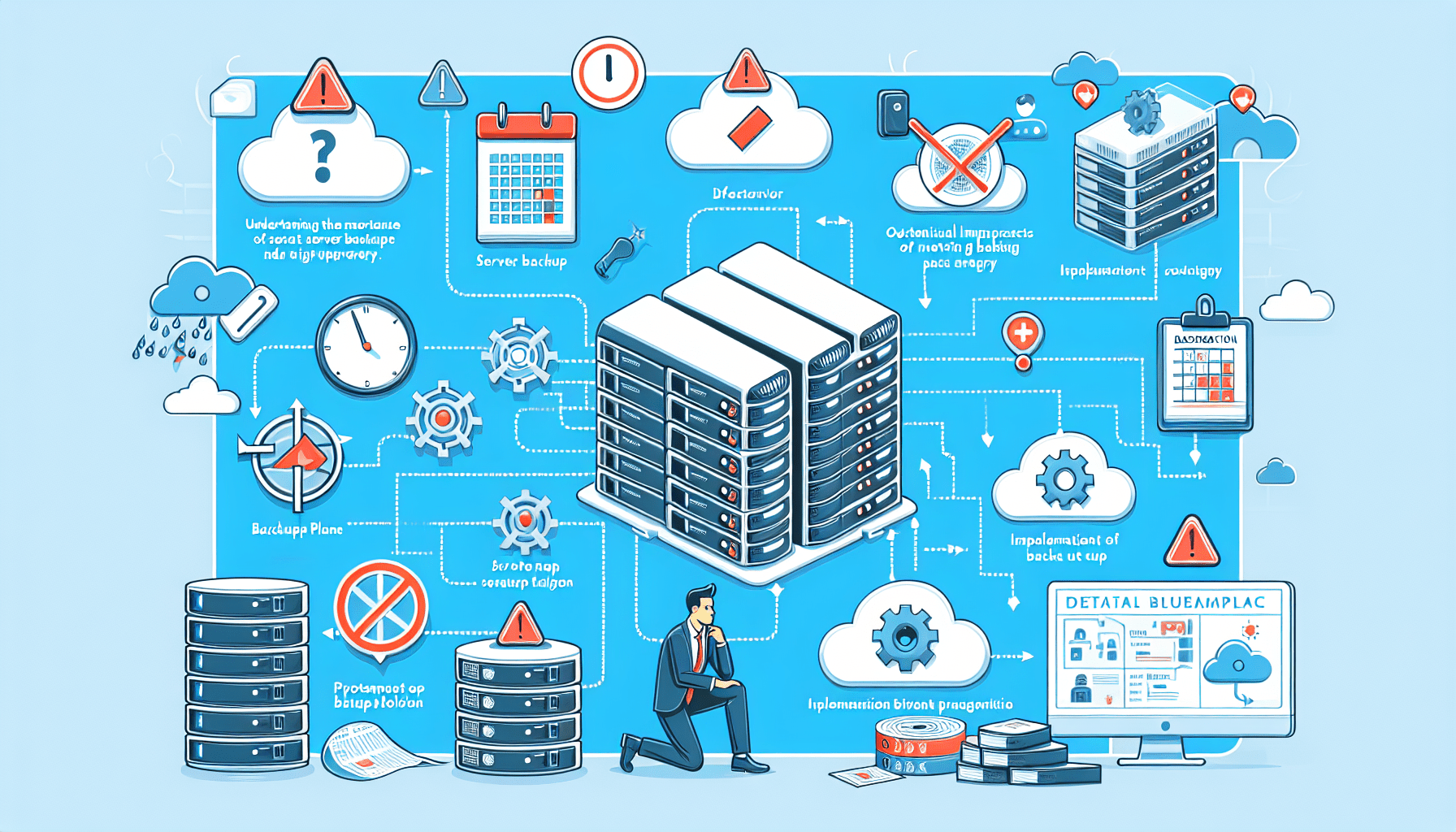Is your mobile application struggling with slow loading times and frequent crashes? You may need to optimize your hosting for better performance. Let’s explore how you can optimize advanced hosting for mobile applications.
Understanding Advanced Hosting for Mobile Applications
When it comes to hosting for mobile applications, advanced hosting offers features and capabilities beyond basic hosting services. This type of hosting is designed to handle the unique requirements and demands of mobile applications, such as scalability, flexibility, and performance optimization.
Advanced hosting for mobile applications typically includes services like load balancing, content delivery networks (CDNs), server-side caching, and database optimizations. These services help improve the speed, reliability, and overall performance of your mobile application.
Speak the Tech Talk
Understanding advanced hosting terminologies may seem daunting at first, but it’s essential to grasp the basics to make informed decisions about your hosting infrastructure. Let’s break down some common terms you might encounter:
- Load Balancing: Load balancing distributes incoming traffic across multiple servers to prevent overload and ensure optimal performance.
- Content Delivery Network (CDN): A CDN is a network of servers distributed geographically to deliver content closer to users, reducing latency and improving loading times.
- Server-Side Caching: Server-side caching stores frequently accessed data on the server, reducing the need to fetch data from the database every time a request is made.
- Database Optimization: Database optimization involves tuning and tweaking databases to improve query performance, reduce load times, and enhance overall efficiency.
Now that you have a basic understanding of these terms, let’s dive deeper into how you can optimize advanced hosting for your mobile application.
Choosing the Right Hosting Provider
Selecting the right hosting provider is crucial for optimizing your mobile application’s performance. Consider factors like scalability, reliability, security, and support when choosing a hosting provider. Make sure the provider offers advanced hosting services tailored to mobile applications.
Factors to Consider When Choosing a Hosting Provider
- Scalability: Ensure the hosting provider can accommodate your application’s growth and handle increased traffic without compromising performance.
- Reliability: Look for a provider with a proven track record of uptime and reliability to ensure your application is always accessible to users.
- Security: Choose a hosting provider that offers robust security features like SSL certificates, firewalls, DDoS protection, and regular security updates.
- Support: Opt for a hosting provider with 24/7 customer support to address any issues or concerns promptly.
Research different hosting providers and compare their offerings to find the one that best meets your mobile application’s needs.
Utilizing Load Balancing for Optimal Performance
Load balancing is a crucial component of advanced hosting for mobile applications. By distributing incoming traffic across multiple servers, load balancing ensures that no single server is overwhelmed, resulting in improved performance and reliability. Let’s explore how load balancing works and its benefits for mobile applications.
How Load Balancing Works
When a user accesses your mobile application, the load balancer receives the request and distributes it to the least busy server in the server pool. This helps evenly distribute the workload and prevent any single server from becoming overloaded.
Benefits of Load Balancing
- Improved Performance: Load balancing optimizes server resources, reduces latency, and ensures faster response times for users.
- Enhanced Reliability: By distributing traffic across multiple servers, load balancing helps prevent server failures and downtime, ensuring uninterrupted availability of your mobile application.
- Scalability: Load balancing allows you to easily scale your infrastructure to handle increased traffic and ensure optimal performance during peak usage periods.
Implementing load balancing as part of your hosting strategy can significantly improve the performance and reliability of your mobile application.
Leveraging Content Delivery Networks (CDNs) for Faster Loading Times
Content Delivery Networks (CDNs) play a crucial role in optimizing advanced hosting for mobile applications. By caching content and delivering it from servers located closer to users, CDNs can significantly reduce latency and improve loading times. Let’s delve into how CDNs work and their benefits for mobile applications.
How CDNs Work
A CDN consists of a network of geographically distributed servers that cache static content like images, videos, CSS files, and scripts. When a user accesses your mobile application, the content is delivered from the nearest CDN server instead of the origin server, reducing latency and accelerating load times.
Benefits of CDNs
- Faster Loading Times: By delivering content from servers closer to users, CDNs reduce the time it takes to load your mobile application, resulting in a better user experience.
- Improved Scalability: CDNs can handle sudden spikes in traffic and distribute content efficiently, ensuring optimal performance during peak usage periods.
- Reduced Bandwidth Costs: Offloading content delivery to CDNs can help reduce bandwidth costs for your hosting infrastructure, especially for high-traffic mobile applications.
Integrating a CDN into your hosting infrastructure can significantly enhance the speed and performance of your mobile application.
Implementing Server-Side Caching for Improved Efficiency
Server-side caching is another essential optimization technique for advanced hosting of mobile applications. By storing frequently accessed data on the server, server-side caching reduces the need to fetch data from the database for every request, improving response times and enhancing overall efficiency. Let’s explore how server-side caching works and its benefits.
How Server-Side Caching Works
When a user requests data from your mobile application, the server retrieves the data from the cache instead of fetching it from the database. If the data is not found in the cache, the server fetches it from the database and stores it in the cache for future requests.
Benefits of Server-Side Caching
- Faster Response Times: Server-side caching reduces the time it takes to retrieve data, resulting in faster response times and improved performance for your mobile application.
- Reduced Database Load: By storing frequently accessed data on the server, server-side caching reduces the load on the database, improving efficiency and scalability.
- Enhanced User Experience: Faster loading times and improved performance due to server-side caching lead to a better user experience and increased user satisfaction.
Implementing server-side caching can help optimize your hosting infrastructure and enhance the efficiency of your mobile application.
Optimizing Database Performance for Enhanced Efficiency
Database optimization is a critical aspect of advanced hosting for mobile applications. By tuning and tweaking databases, you can improve query performance, reduce load times, and enhance overall efficiency. Let’s delve into database optimization techniques and their importance for mobile applications.
Database Optimization Techniques
- Indexing: Creating indexes on frequently queried columns can improve query performance by reducing the time it takes to retrieve data from the database.
- Query Optimization: Fine-tuning queries, minimizing joins, and avoiding unnecessary queries can help optimize database performance and reduce load times.
- Caching: Implementing database query caching can help reduce the load on the database and improve response times for frequently accessed data.
- Normalization: Ensuring that the database is properly normalized and structured can optimize query performance and enhance database efficiency.
Importance of Database Optimization
- Improved Performance: Optimizing the database can significantly improve query performance, reduce load times, and enhance the overall efficiency of your mobile application.
- Scalability: An optimized database can handle increased traffic and data loads more effectively, ensuring optimal performance as your application grows.
- Cost Efficiency: Database optimization can help reduce database maintenance costs, improve resource utilization, and enhance the cost efficiency of your hosting infrastructure.
By implementing database optimization techniques, you can enhance the performance, scalability, and efficiency of your mobile application hosting.
Monitoring and Analyzing Performance Metrics
Monitoring and analyzing performance metrics is essential for optimizing advanced hosting for mobile applications. By tracking key performance indicators (KPIs) like response times, uptime, traffic patterns, and server load, you can identify bottlenecks, troubleshoot issues, and optimize your hosting infrastructure. Let’s explore the importance of monitoring performance metrics and how it can help improve your mobile application’s performance.
Key Performance Indicators (KPIs) to Monitor
- Response Times: Monitoring response times helps you ensure that your mobile application is delivering content quickly and efficiently to users.
- Uptime: Tracking uptime metrics helps you assess the reliability and availability of your mobile application and hosting infrastructure.
- Traffic Patterns: Analyzing traffic patterns can help you identify peak usage periods, plan for scalability, and optimize server resources.
- Server Load: Monitoring server load metrics helps you ensure that your hosting infrastructure can handle the current traffic and workload efficiently.
Keeping an eye on these key performance indicators allows you to proactively address performance issues, optimize your hosting infrastructure, and deliver a seamless user experience.
Conclusion
Optimizing advanced hosting for mobile applications is crucial for ensuring optimal performance, reliability, and scalability. By understanding advanced hosting concepts, choosing the right hosting provider, leveraging optimization techniques like load balancing, CDNs, server-side caching, and database optimization, and monitoring performance metrics, you can enhance the efficiency and effectiveness of your mobile application hosting. Remember that a well-optimized hosting infrastructure is key to delivering a fast, reliable, and engaging user experience for your mobile application.









